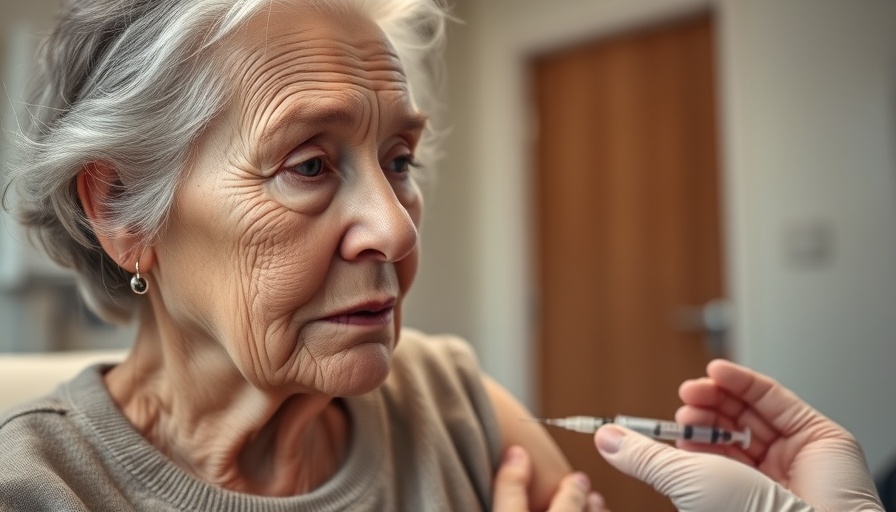
Exploring the Surprising Link Between Shingles Vaccination and Dementia Risk
The rise in dementia cases, including Alzheimer's, has been a source of concern for families and caregivers globally. As research continues to provide new insights, a noteworthy study conducted by Stanford Medicine reveals that a vaccine already known for preventing shingles—an uncomfortable viral rash—might also reduce the risk of developing dementia by 20%. This discovery opens up intriguing avenues in the quest for effective interventions against cognitive decline as we age.
Understanding the Research Design
In addressing potential biases from previous studies that suggested a link between shingles vaccination and reduced dementia risk—where health-conscious individuals were more likely to get vaccinated—researchers cleverly utilized a unique public health policy in Wales. Introduced in 2013, this program granted shingles vaccine access strictly based on age, allowing a near-experimental design comparison. The eligibility criterion led to two closely matched groups: one eligible for the vaccine and the other not, allowing researchers to isolate the impact of the vaccine itself.
The Powerful Findings
The results were compelling. Individuals who had received the shingles vaccine were significantly less likely to develop dementia within a seven-year timeframe compared to their unvaccinated counterparts. The study's primary author, Dr. Pascal Geldsetzer, emphasized the importance of these findings, particularly highlighting that the observed effect was more pronounced in women. This difference may suggest variations in immune responses or the progression patterns of dementia between genders.
Why This Matters to Older Adults
For older adults and their caregivers, this research is not just a statistical finding—it's a call to action. With the prevalence of dementia escalating, understanding preventative measures such as vaccines holds promise. The idea that a standard vaccination can play a role in cognitive health adds another layer to the importance of routine vaccinations. Encouraging older adults to stay up to date on their vaccinations could provide an additional safeguard in maintaining mental clarity and overall well-being.
Exploring Future Implications
This research raises numerous questions about future health protocols for aging populations. Should shingles vaccinations be actively promoted not just as a method to prevent shingles but also as a potential safeguard against cognitive decline? Furthermore, how might this vaccine be integrated into broader public health strategies aimed at enhancing mental health in older adults? As these questions linger, they amplify the ongoing dialogue about the significance of vaccines in promoting holistic health.
The Journey Ahead: Advocacy and Awareness
Helping to disseminate these findings is essential. From healthcare professionals to community health advocates, spreading awareness about the unexpected benefits of the shingles vaccine could help encourage vaccination among skeptical, older demographics. Addressing fears and misconceptions around vaccination is crucial in optimizing health outcomes for this population.
Your Health: Taking Proactive Steps
Incorporating this newfound knowledge into your health strategy may involve highlighting the role of shingles vaccination during medical check-ups or discussions with family and friends. Moreover, alongside vaccinations, promoting other healthy lifestyle changes such as balanced nutrition, regular exercise, and stress management can further enhance cognitive health. Focusing on practices that promote brain health can empower individuals to take charge of their well-being.
The prospect of utilizing existing vaccines to combat escalating health concerns presents a unique intersection between preventive medicine and neurological health. As further studies come to light, the medical community and society overall must remain vigilant and informed, contributing to a healthier future for our aging population.
 Add Row
Add Row  Add
Add 




Write A Comment